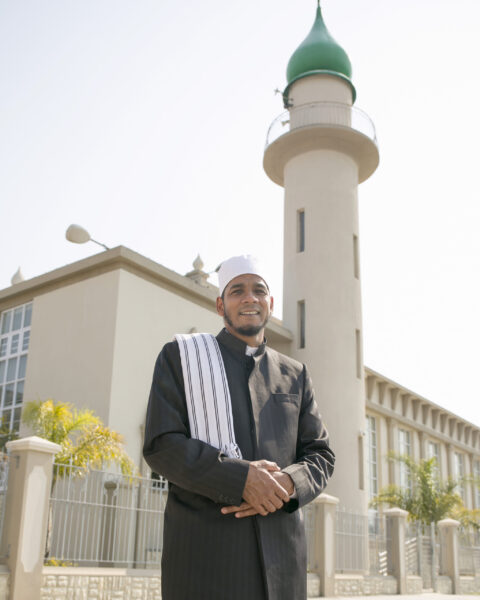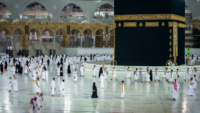Sheikh Mukhtar Raban Appointed as Head Imam of Masjid-ut-Taqwa, Largest Masjid in Eastern Cape

Sheikh Mukhtar Raban has been appointed head imam of the largest masjid in the Eastern Cape, Masjid-ut-Taqwa.
The 36-year-old Sheikh Raban, one of the youngest imams to be appointed at the main masjid, is the third imam to take leadership of this iconic place of worship since it was established in Gelvan Park in 1972.
His appointment follows Sheikh Shamiel Panday, who served as the imam for more than two decades.
Sheikh Raban is a lecturer in the Faculty of Humanities at the Nelson Mandela University and holds degrees in Arabic Linguistics and Shari’ah (Islamic law) from the Islamic University of Medina in Saudi Arabia.
He has also obtained a Masters Degree in Education from the Stellenbosch University, and is pursuing his PhD with the University of Cape Town.
Sheikh Raban also heads the teaching and learning of the largest online Islamic university globally, the International Open University and is a member of the Muslim Judicial Council South Africa.
Ighsaan Gamieldien, Chairman of the Board of Trustees of Masjid-ut-Taqwa says Sheikh Raban was the ideal candidate to take over the reins at the Masjid.
“Sheikh Mukhtar is a young, dedicated and focused individual. He is a visionary leader and a strategic thinker who sets clear objectives and goals. He connects well with diverse groups of people and is approachable to people at all levels and age groups.”
Sheikh Raban says he is extremely grateful for the opportunity to lead and serve the community.
“This job comes with significant responsibility, and I am ready to assume this role to the best of my ability. I grew up attending this mosque and I have established solid relationships with senior leaders and community members who have supported this mosque over the years”
Masjidut Taqwa was the first masjid to be built in the city’s Northern Areas after the forced removal of non-white communities from South End and surrounding areas during the Apartheid regime.









